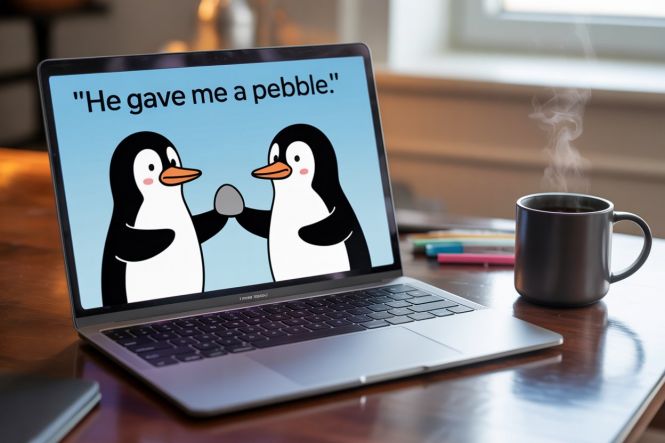 What is “digital pebbling”? You may be practicing it, too
What is “digital pebbling”? You may be practicing it, too
Penguins are adorable creatures. There are numerous documentaries about them, many of which have you glued to the screen upon being encountered through the endless process of zapping. Most of those documentaries describe a behavior called “pebbling,” which is observed in Gentoo penguin communities: to show affection, a penguin gives his chosen one a pebble.
Us humans are no different from penguins in this respect, and whatever we give to express our feelings is as valuable in our realm as pebbles are in the kingdom of penguins. Emotionally, that is. Investigating one of the manifestations of this phenomenon, researchers from Concordia University and ESSEC Business School came up with the term “digital pebbling,” which, in the context of their study, concerns sharing cute animal pictures and videos online functions as a form of social bonding and affection.
There is more to that amusing animal picture than you might think
The study, titled “Digital Affective Encounters: The Relational Role of Content Circulation on Social Media,” highlights several key findings about digital pebbling:
- Sharing animal images not only triggers amusement but also generates positive emotions that support and deepen relationships.
- Initially, the shared content receives emotional cues in the form of hashtags or captions, which have personal meaning.
- Such emotionally loaded videos and pictures are forwarded further, conveying the sender’s affection and acting as social lubricants both online and offline.
In other words, sharing a picture of a cute puppy, kitten, or capybara, you encourage interaction and engagement, and those on the receiving end may reuse this content to connect emotionally with others.
Overall, it turns out sending pictures and videos of adorable animals is far more than mere entertainment: it is a meaningful behavior reinforcing connections on the emotional level and creating an umbrella of positivity that can cover many more people than intended. This wide coverage, though, does not prejudice the intimate bond between the initial couple or group where the content that’s gone viral originated, so it’s a win for everyone involved. Isn’t it splendid to actually have something on the Internet that does not backfire, one way or another?



